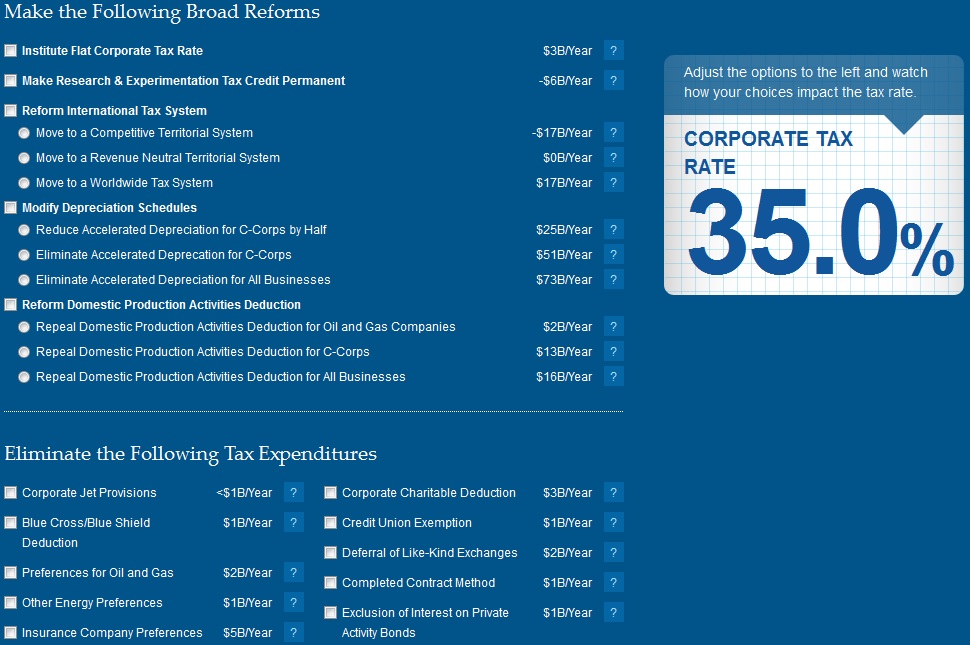RATE Coalition Urges a More Competitive Tax Code
Today, the RATE Coalition sent a letter to the chairs and ranking members of the House Ways and Means and Senate Finance Committees, urging them to take up corporate tax reform which lowers rates in order to make the tax code more competitive. As they write:
Twenty five years ago, the U.S. had one of the lowest corporate tax rates among members of the Organization for Economic Cooperation and Development (OECD). Today, at 35 percent, the top federal statutory corporate tax rate is 10 percentage points above the OECD average and nearly 15 points higher when state and local taxes are included. The costs to our economy are significant and already being realized. According to a new Ernst & Young study, GDP in 2013 is expected to be between 1.2 and 2.0 percent lower as a result of our OECD-leading corporate tax rate. Simply put, the U.S. can no longer afford to stand still.
We are big believers in corporate tax reform, but much or perhaps all of the economic benefit of lower corporate rates would be lost if we financed them by increase deficits and debt. To this end, we've argued that any corporate tax rate reduction should be fiscally responsible, paid for with a broader corproate tax base. Last year, we wrote a detailed report on this very topic.
So how would one pay for a reduction in the corporate tax rate? To answer this question we created a tax reform calculator that allows users to design their own plan. Users can set a revenue target, pick a number of options for base-broadening or, in a few cases, deficit-increasing provisions, and see what corporate rate allows them to satisfy both parameters. The base-broadening options include a number of tax expenditures and a few non-tax expenditure deductions that could also be changed.
Reforming the corporate tax system is one way policymakers can "Go Smart" in a the context of a broad deficit reduction plan. As the RATE Coalition argues, there is a real opportunity to pursue this reform:
It has been more than a quarter century since comprehensive tax reform was last enacted and, like in 1986, we face a divided government with many doubting our chances of success. However, we are confident that bipartisan reform – reinforced by your leadership – will put us on a path that leads to broad economic growth and job creation. President Reagan and Speaker of the House Tip O’Neill achieved meaningful reform and we believe that it is possible again today.
Click here to use the corporate tax reform calculator and click here to see our report on reform.



